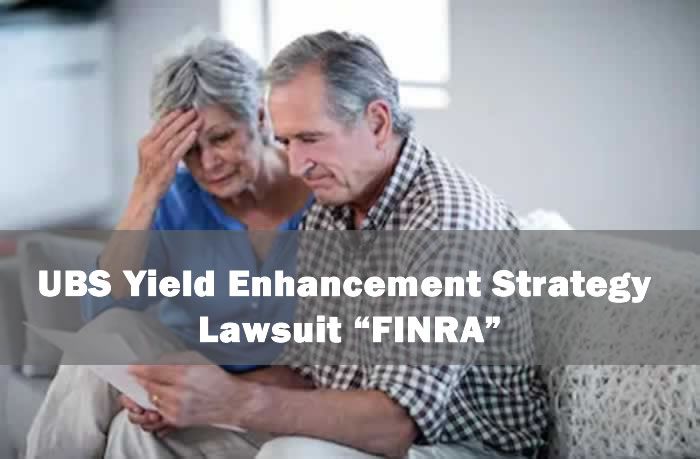UBS Wealth Management lost a couple of key FINRA arbitration cases this past week on Yield Enhancement Strategy (known as YES). The full $269,337.09 loss plus prejudgment interest of $45,009.80, to Robert and Marcia Shinbrot. The full $421,868.58 loss plus prejudgment interest of $70,499.93, to Nicholas and Brigit Trentalange.
In addition, all costs and fees, amounting to over $57,000, were also assessed to the defendant, according to the FINRA (Financial Industry Regulatory Authority) award, which was finalized on 17th September and delivered by a three-person panel, ordering UBS Wealth Management USA to affect the compensation. Reasons for the decision were not provided by the panel.
Qualifying it as a unique judgment, Jeffrey Kaplan, the Miami-based attorney of Dimond Kaplan & Rothstein, who represented the two pairs of clients, said that to his knowledge, thought over a dozen cases had been filed for claiming losses incurred on account of the YES strategy promoted by UBS Wealth Management USA, this was only the second case where claimants had received the full amount of their claim.
UBS’ request for the claim to be expunged from the records of the two brokers, Tim Croak and Gabriel Cooperman, who also worked on the team led by Mathey Buchsbaum, that had created the YES strategy, was turned down, even though they were not named parties.
Houston investor Daniel Ferber is the only other investor who was awarded the full amount of $358,000 that he had sought in damages, by another FINRA panel. His request for fees and interest and costs had, however, been denied.
The claimants, Robert Shinbrot and Nicholas Trentalange had been business partners in ForwardThink Group, which was acquired for $46 million by Perficient, a tech consulting firm, in 2014.
What is YES?
Table of Contents
Designed as a strategy to “generate additional cash flow from lower-yielding assets” it was expected to be a market-neutral strategy. Cash flow was expected to be generated through the sale and purchase of S&P 500 index option spreads, according to a UBS marketing brochure which went on to claim that losses were limited to premiums paid while premiums collected would translate to assured income.
The options-spread strategy was widely marketed by UBS a few years back. During periods of market volatility, the strategy appears to have gone berserk, inviting a slew of complaints and claims from impacted customers. As is known, YES portfolio returns dropped 20% in 2018 in response to the tanking of S&P 500, and dropped off a cliff and lost over 40% in the mayhem that was triggered by the onset of the pandemic in 2020, as claimed in reports sent to investors by UBS.
UBS has refrained from commenting on the arbitration awards, or whether they seek an overturn in court in case of awards against.
Awards favoring UBS
These two awards even up the scores a bit for UBS, who has prevailed in 9 out of the 15 arbitration cases pertaining to YES. Of the 6 where they have not, in only two cases, as listed earlier in this article, have claims been awarded for 100% of losses incurred.
In a case favoring UBS, Jess DiPasquale’s claim of $743,021, plus over $50,000 in out-of-pocket expenses, attorney fees amounting to 25% of the award, and punitive damages, was turned down by a FINRA arbitration panel in New York, on the 22nd of September.
No reasons were provided by the arbitrators, like was done, or not done, in the Shinbrot-Trentalange case. Though it was an award in favor of UBS, their request for expunging the case from the record of New York city-based broker Marc Ridell was turned down by the panel. He was not named in the claim and has a clean record as a broker.
No comment was forthcoming from Alan Rosca, the Ohio-based attorney of DiPasquale.
What decides the winner?
A number of investors in YES related claims struggle to identify what results in making a claim successful. In the recent YES cases, lawyers relied on largely the same evidence and variations of the same arguments in presenting our clients’ cases to multiple different FINRA arbitration panels, but the awards issued in those cases have ranged from $0 to 100 cents on the dollar.
The key focus has always been on highlighting the lack or absence of risk disclosure in the marketing material of the YES strategy.
Though he had the option of naming the UBS brokers who Shinbrot and Trentalange had worked with, he decided not to as even those brokers, he believed, had not been updated on ‘certain material risks of YES’ by the originators of the strategy. This was despite these brokers being on the same floor as the strategy originators.


